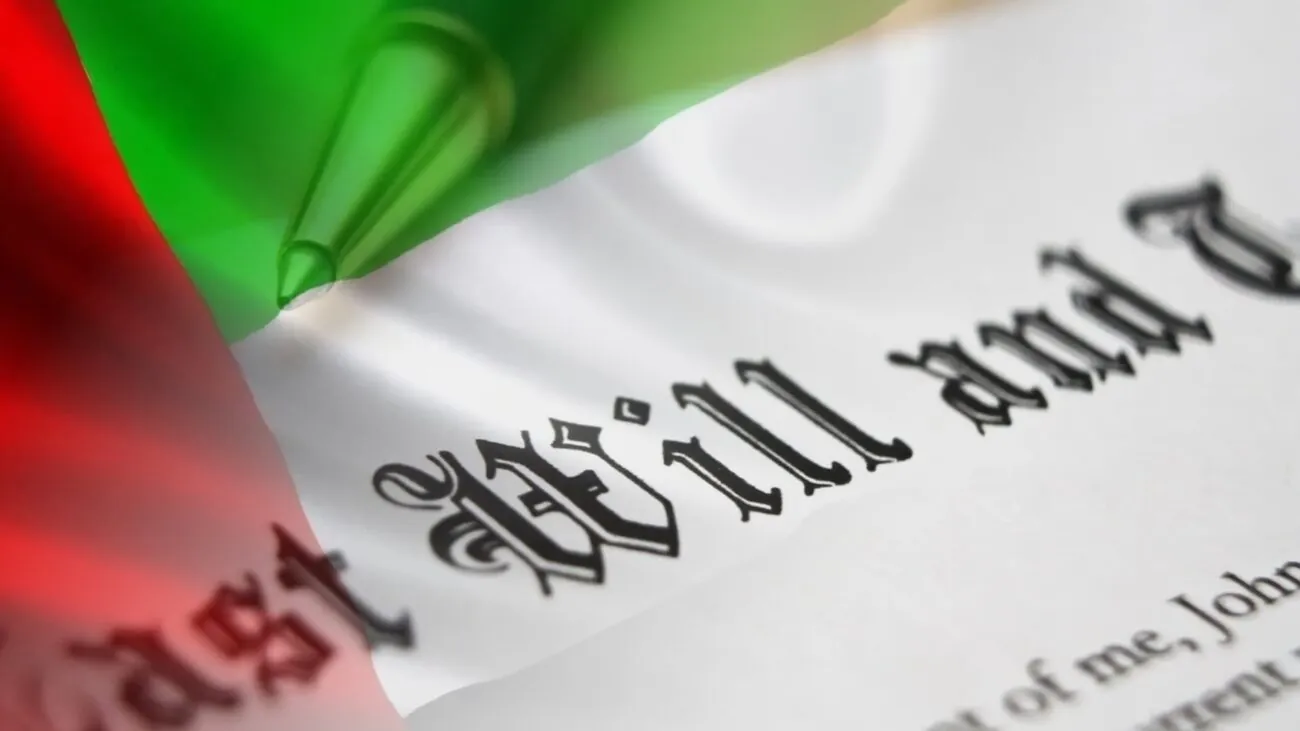
Planning for the future is essential, especially when it comes to ensuring that your loved ones are taken care of after you’re gone.
In the United Arab Emirates (UAE), drafting a will is a crucial step in safeguarding your assets and providing clarity on how you wish for your estate to be managed.
However, navigating the legal landscape of will drafting in the UAE requires careful consideration of various factors to ensure that your wishes are accurately reflected and legally binding.
Table of Contents
Understanding the Legal Framework

Source: freepik.com
Before delving into the specifics of drafting a will UAE, it’s essential to understand the legal framework surrounding estate planning in the country. The UAE follows Sharia law principles, which govern inheritance matters for Muslims.
Non-Muslim expatriates, on the other hand, have the option to choose the application of their home country’s laws or opt for UAE law to govern their estate distribution.
Eligibility and Capacity
One of the primary considerations when drafting a will in the UAE is ensuring that you have the legal capacity to do so. This includes being of sound mind, free from undue influence, and at least 21 years old. Additionally, non-Muslim expatriates must obtain a wills and probate certificate from the Dubai Courts to validate their wills.
Assets and Beneficiaries
A comprehensive will should clearly outline all your assets, including properties, bank accounts, investments, and personal belongings, along with specifying how you want them distributed upon your demise. Additionally, identifying your beneficiaries with clarity is crucial to avoid any ambiguity or disputes over inheritance.
Guardianship for Minors
If you have minor children, appointing guardians in your will is paramount to ensure their well-being and care in the event of your passing. The chosen guardians should be willing and capable of assuming this responsibility and should be explicitly named in your will.
Executor Selection

Source: cnbc.com
Choosing the right executor for your will is essential, as this individual will be responsible for administering your estate according to your wishes. It’s advisable to select someone trustworthy, competent, and organized to fulfill this role efficiently.
Review and Update Regularly
Life is dynamic, and circumstances may change over time. Therefore, it’s crucial to review and update your will regularly to reflect any significant life events such as marriage, divorce, birth of children, or acquisition of new assets.
This ensures that your will remains relevant and accurately reflects your intentions.
Legal Assistance
Given the complexity of UAE’s legal system and the importance of ensuring a legally valid will, seeking professional legal assistance from a qualified attorney specializing in estate planning is highly recommended.
A legal expert can provide invaluable guidance, ensure compliance with local laws, and help draft a watertight will that safeguards your legacy.
Legal Nuances for Expatriates

Source: istockphoto.com
Expatriates in the UAE face unique challenges and opportunities when drafting a will, due to the diverse legal systems and practices in play. Expatriates must specify whether their home country’s law or UAE law should apply to their will.
This decision can significantly impact how assets are distributed and should be made with a thorough understanding of the implications of both legal systems.
Consulting with a legal professional who has expertise in cross-jurisdictional estate planning can provide clarity and ensure that the will is structured to best meet the individual’s wishes and legal requirements.
Incorporating Business Interests
Many residents in the UAE have business interests that must be carefully considered in estate planning. Whether you own a share in a company or run a personal business, it’s important to outline how these interests should be managed or distributed after your passing.
This might involve specifying successors, dictating the sale of the business, or outlining how shares should be allocated among beneficiaries. Addressing these details can prevent complications and ensure the continuity or orderly disposition of your business interests.
Cultural Sensitivities and Legal Compliance
The UAE is a melting pot of cultures and religions, making it essential to draft a will that is not only legally compliant but also culturally sensitive.
This is especially pertinent when making arrangements for guardianship or distributing assets to beneficiaries from different cultural backgrounds. Sensitivity to cultural norms and practices can facilitate smoother execution of the will and minimize conflicts among heirs.
Digital Assets and Online Presence

Source: linkedin.com
In the digital era, your online presence forms a significant part of your legacy. When drafting a will, it’s imperative to address your digital assets, which encompass social media profiles, digital wallets, online business ventures, and more.
These assets, often overlooked, require clear directives for management or transfer posthumously. Deciding whether to deactivate accounts or pass them on to loved ones involves careful thought to avoid potential legal hurdles.
By explicitly stating your preferences for each digital asset, you ensure that your online presence is curated and concluded in line with your intentions.
This foresight not only safeguards your digital legacy but also simplifies the process for your executors and beneficiaries, ensuring a smooth transition and closure of your digital life.
Tax Implications and Estate Planning
Navigating the tax implications associated with estate planning is a critical aspect of securing an efficient transfer of assets to your beneficiaries. Particularly in the UAE, where the tax framework differs markedly from other countries, understanding these nuances becomes paramount.
The absence of personal income tax in the UAE presents unique planning opportunities, yet expatriates must also consider the tax laws of their home countries, which might levy taxes on global estates or inheritances.
Engaging with a financial advisor or tax specialist who is well-versed in both local and international tax regimes is invaluable. Such professionals can offer strategic advice on structuring your estate in a manner that minimizes tax liabilities, ensuring that your assets are maximized for your beneficiaries.
Effective tax planning within your estate strategy ensures that your legacy is passed on with financial efficiency and legal clarity, aligning with your wishes and providing peace of mind.
Conclusion

Source: usatoday.com
Drafting a will in the UAE is a significant step towards securing your legacy and providing for your loved ones in your absence.
By understanding the legal requirements, carefully considering key aspects such as asset distribution, guardianship, and executor selection, and seeking professional legal advice when needed, you can ensure that your wishes are upheld and your estate is managed according to your desires.
Remember, proactive estate planning today can provide peace of mind and financial security for your family tomorrow.







